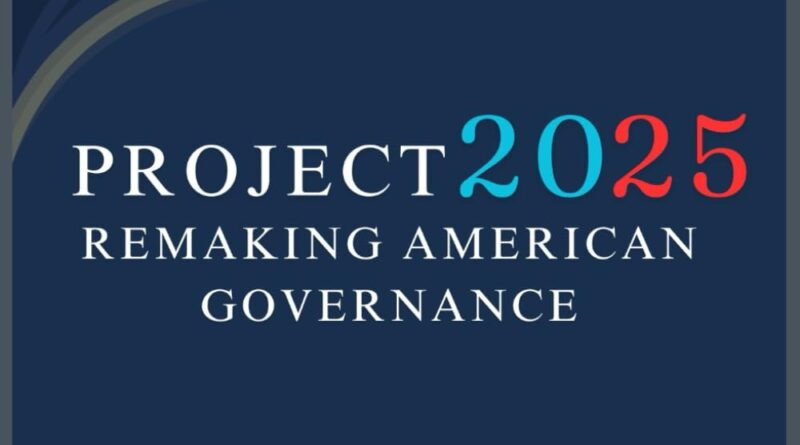Critics oppose Project 2025
Following his 2024 election victory, President-elect Donald Trump’s agenda, heavily influenced by “Project 2025,” is beginning to take shape. Developed by the Heritage Foundation and over 100 conservative organizations, this 900-page proposal outlines sweeping changes to health care, public health, and education. While some see it as a bold effort to streamline government, others view it as a threat to vulnerable populations and public institutions.
As these policies move closer to implementation, it is crucial to examine their implications. For students, understanding how these decisions affect education, health care, and opportunities is essential. Holding policymakers accountable and staying informed are responsibilities we all share.
One major aspect of Trump’s health care agenda involves the repeal or replacement of the Affordable Care Act (ACA), commonly known as Obamacare. Key changes include the potential expiration of expanded premium subsidies in 2026, which could increase health care costs for millions of Americans. The administration also proposes shifting to health savings accounts, which critics argue would burden lower-income families.
Sue Anderson, CVHS health teacher, expressed concerns about the consequences. “Millions of people will lose their health insurance if the ACA is repealed,” Anderson explained. “Pre-existing conditions, such as diabetes or cardiovascular disease, will no longer be covered, forcing individuals to rely on costly emergency insurance.” She emphasized that marginalized communities would suffer disproportionately under these changes.
CVHS students shared mixed views on Trump’s agenda and Project 2025.
“I heard it wasn’t even Trump’s method or proposal,” said Isabella Zizzo, a junior. Zizzo’s comment reflects common confusion about the proposal’s origins. While Trump did not personally author the plan, many elements align closely with his administration’s policies. Her skepticism highlights the difficulty of understanding complex proposals like Project 2025.
Kyla Thompson, another junior, expressed concern about the broader implications of Trump’s policies. “He’s removing protections for immigrants and endangering women’s health care. Contraception is so important for young girls, and taking that away impacts future generations,” Thompson said. While her concerns reflect valid fears about the administration’s priorities, Trump’s health care agenda focuses more on structural reforms to programs like the ACA, Medicare, and Medicaid, rather than directly addressing contraception or immigration policies.
Senior Melina Zamora described the proposal as “very alarming.” “It’s a far-reaching, thousand-page thing that changes everything,” Zamora said. Her concerns reflect the difficulty many face in comprehending such an extensive agenda.
Not all students were engaged. “I don’t pay attention to that stuff,” said Mareina Farias, a junior. Her response is a reminder of the importance of fostering civic awareness, especially when policies like Project 2025 could directly impact students’ lives.
Beyond health care, Trump’s agenda includes significant reforms to Medicare and Medicaid, such as prioritizing private insurance plans under Medicare Advantage and introducing stricter work requirements for Medicaid. Anderson warned these changes would disproportionately affect vulnerable populations. “This approach shifts the burden to individuals and states,” she said. “It jeopardizes access to essential care, especially for those living in food deserts or struggling with chronic conditions.”
Trump’s agenda also addresses drug pricing, aiming to lower domestic costs by signing an executive order to ensure the U.S. pays no more than the lowest price offered internationally. While this initiative could benefit consumers, Anderson raised concerns about oversight. “Without safeguards, pharmaceutical companies may prioritize profits over public health,” she remarked.
Education reforms proposed in the agenda include dissolving the Department of Education and integrating artificial intelligence (AI) into human roles, such as surgeons. Anderson voiced concerns about relying too heavily on AI, particularly in health care. “AI algorithms often prioritize efficiency over individual needs. Without proper regulations, patient safety and equitable access could be at risk,” she said.
“These changes are not just policies on paper; they affect real lives, now and in the future,” Anderson concluded.
One thing Project 2025 however does manage to accurately underscore is the value and demand for informed discussions and civic engagement, and the beauty of it is we can start right here at CVHS with intent and motive.

